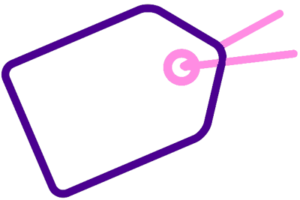 White labels became massive in the 2010’s as they offered the easiest way for brands to launch on a budget or for companies to spin off ‘skins’ of existing sites.
White labels became massive in the 2010’s as they offered the easiest way for brands to launch on a budget or for companies to spin off ‘skins’ of existing sites.
The principle is simple and makes a lot of business sense. The white label operator provides the site, payment processing, games, network and gambling license while the owner simply does the branding and marketing and maybe customer support.
As technology has improved white labels became a very cost effective way to set up a new casino, bingo or sports betting site and by the end of the last decade white labels well outnumbered independent brands, especially in bingo and casino.
Things began to change in the UK in 2017/18 as online gambling regulation came to the forefront of government policy. Changes to the industry since has made it much more difficult for white label providers who in the last two years have been closing sites or networks at a rapid rate. On this page we look at why the white label market is crashing and whether it has a future.
Recent Closures & Network Changes
 Before getting into what white labels are and why they have closed it is interesting to look at the scale of the issue. Below are some of the more recent developments in the white label industry:
Before getting into what white labels are and why they have closed it is interesting to look at the scale of the issue. Below are some of the more recent developments in the white label industry:
- In 2017 Cozy Games is acquired by Entain PLC (previously GVC) who over the next 3 years close most of their white labels and bring the network more in-house by closing many of their B2B partnerships. Software is re-branded under ElectraWorks.
- Virtue Fusion, owned by Playtech, scale back white label operations in favour of B2B services, by early 2020 only one brand remains on the license. The sites run by VF either close or migrate to other white label operators.
- Dragonfish and Jumpman continue to expand releasing new brands and taking on brands dropped by other networks.
- National newspaper brands from the Daily Mirror, Daily Star and Daily Express re-launched with Jumpman in 2020.
- Bucky Bingo move from Virtue Fusion to 888 owned Dragonfish in early 2020, one of the last VF licensed sites to move.
- Pragmatic Play launches a new bingo product with white label partners that are integrated into other networks rather than just stand alone (e.g. Jumpman 15 Network).
What Is A White Label?
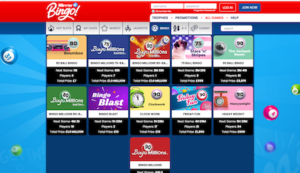 A white label in the online gaming world is a site that is operated by someone different to the gambling licence holder. In this situation it is the company that provides the site and license and they hold the legal responsibilities in terms of protection of funds, customer verification and monitoring and payments – as well, of course, as providing the actual interface, games and features.
A white label in the online gaming world is a site that is operated by someone different to the gambling licence holder. In this situation it is the company that provides the site and license and they hold the legal responsibilities in terms of protection of funds, customer verification and monitoring and payments – as well, of course, as providing the actual interface, games and features.
There are various degrees of third-party integration for gaming sites, for example, a site may use a third-party network for bingo but they will still have their own platform and license and therefore the brand themselves hold the legal responsibility. This is not what we are talking about here, when we refer to white label we mean brands that are fully operated and licensed by a third-party.
With a full white label the brand owner in effect simply manages the branding, advertising and acquisitions. Depending on the deal they have with the provider they may run the customer support but this is often also run by the licence holder.
Why Are There So Many Bingo White Labels?
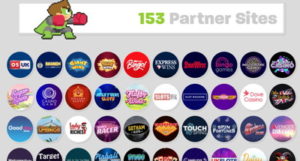 Casinos and sports betting sites tend to be more complex compared to online bingo websites, requiring more sections and features. There are a lot of casino and sportsbook white labels but they are much more expensive compared to bingo and so proportionally there are less of them.
Casinos and sports betting sites tend to be more complex compared to online bingo websites, requiring more sections and features. There are a lot of casino and sportsbook white labels but they are much more expensive compared to bingo and so proportionally there are less of them.
A bingo site effectively needs three things: games, a network to run those games on and a community of players from other sites in the network to play against. Beyond this the rest of the site is basically just promotions and features.
Therefore, for a new company wishing to enter the bingo market it is by far the easiest thing to set up as a white label. This way there is minimal initial outlay on developing games and a platform, requiring less staff. Sites can also be launched much more quickly because they can be added to an existing gambling license. The operator then takes either a fixed fee or revenue share for running the site and the brand owner takes the rest.
In the past the fact it has been so easy and relatively cheap to set up white label means the market has exploded. At the same time the companies that make and run the proprietary games and networks also run many of the white labels (e.g. Jumpman and 888) and this means they can keep their costs very low. A bingo white label could easily be set up with a budget in the low £10’s of thousands, rather than the high £100’s thousands needed for sports or casino.
Who Are The Biggest Providers?
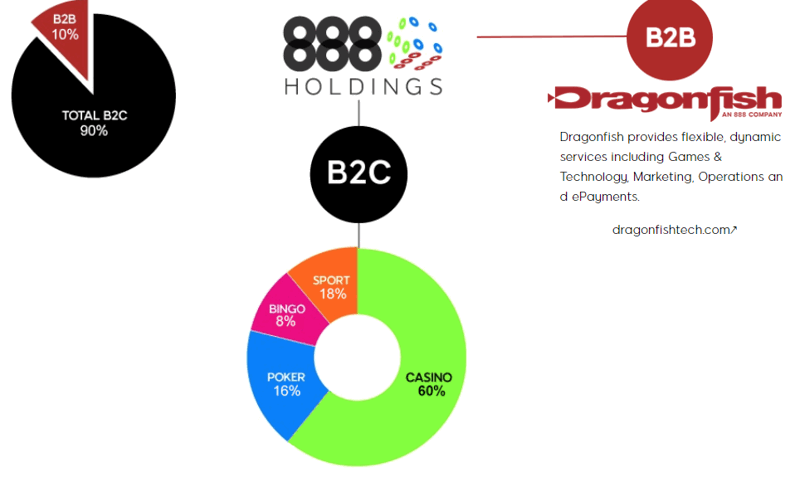
The majority of white labels belong to Jumpman Gaming and 888 (Dragonfish). Other providers include Nektan, a more recent entry in 2019 running Pragmatic Play bingo games.
Dragonfish and Jumpman offer two types of integration for brands. The first is the situation where brands have their own site and gambling licence but then use a specific network for games and the network. This is common for established general gambling sites that want to add bingo. The second, most common service, is a full white-label product, where the operator does everything except the branding.
The biggest benefit of joining these networks is they have 100’s of sites on them and 100’s of thousands of players. This means the games are very frequent with a big variety of rooms and generally higher prizes compared to an independent site or smaller network.
The biggest drawback of a white label is you end up with 100’s of sites that look the same with the same games, features and offers, which in effect homogenises the landscape. From a customer point of view there is nothing especially negative about a white label and if you like big communities they could be the way to go, if you prefer personalisation and unique games, however, you would be better with a smaller network or independent brand.
Why Are White Labels Closing Down In The UK?
Like most things in life there is no specific stand out reason why white labels are in decline, rather a combination of factors that have influenced the market, here are some of the main reasons:
Tax
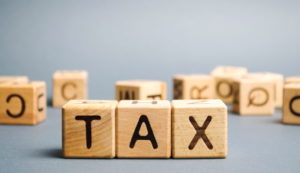 In 2019 the UK introduced a higher point of consumption tax for online operators in the UK. The level was raised from 15% to 21%.
In 2019 the UK introduced a higher point of consumption tax for online operators in the UK. The level was raised from 15% to 21%.
This has an obvious affect on profits for brand operators, especially if they have to maintain a minimum fee to the operator that provides the site.
Competition

There are literally 1000’s of bingo sites you can play with today and that means an incredible level of competition rising much quicker than the pool of people who play online bingo.
The nature of a white label means they are often run with lower budgets and so are less able to compete in terms of advertising and acquisition, leading to many failing as they struggle to maintain payments to the site operators.
Licensing Regulation
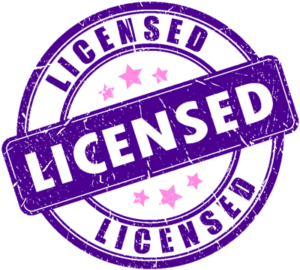 Ten years ago the online market was very relaxed and apart from verifying you were over 18 there were not too many things a license holder had to do. This all changed in around 2017/2018, with problem gambling on the rise and online betting exploding the government intervened with a raft of measures they expected license holders to follow to protect customers.
Ten years ago the online market was very relaxed and apart from verifying you were over 18 there were not too many things a license holder had to do. This all changed in around 2017/2018, with problem gambling on the rise and online betting exploding the government intervened with a raft of measures they expected license holders to follow to protect customers.
This has been a huge headache for white label operators who now have much more responsibility in monitoring players and funds. This as a whole has made the UK less attractive to many operators who have pulled or reduced white label services as a whole.
Customer Funds and Verification
 The license holder is responsible for knowing their customers. This means they are the ones that have to verify your age and residential status when you join. A change in the law in 2019 now means customers have to be verified before they can play, which has added significant pressure to the license holder.
The license holder is responsible for knowing their customers. This means they are the ones that have to verify your age and residential status when you join. A change in the law in 2019 now means customers have to be verified before they can play, which has added significant pressure to the license holder.
At the same time it the company the holds the license that is responsible for customer funds, both in checking the source of those funds are legal and in protecting them. This has also become more difficult for operators as the UKGC and BCG now expect them to monitor customers and funds more closely.
There are instances where white label owners have gone bust, leaving the operator to take the brand in house and meet liabilities. This has indirectly pushed up the costs for these services as a consequence.
Advertising and Promos
 The brand owner is responsible for their own advertising and in some cases their own offers and since more stringent advertising guidelines for gambling have come into force it has highlighted a big problem with this arrangement.
The brand owner is responsible for their own advertising and in some cases their own offers and since more stringent advertising guidelines for gambling have come into force it has highlighted a big problem with this arrangement.
The main issue is the license holder is responsible for the marketing activity done under its license yet brand owner themselves are often releasing these ads or promos, which often leads to issues and fines. In light of this operators now need to check all ads and materials sent to customers, which further increases costs and the resources required.
VIP programs have also come under intense pressure as these are the areas where problem gamblers are more likely to arise. In many situations the brands are managing the VIP players yet the operator holds the license and is responsible or them. This has caused many issues that have resulted in operator fines.
Fines
 Many white label operators have been fined in the last few years as the UKGC seeks to clamp down on operators with repeated responsible gambling failings.
Many white label operators have been fined in the last few years as the UKGC seeks to clamp down on operators with repeated responsible gambling failings.
It is becoming difficult for operators to monitor hundreds of sites and white labels on their networks simultaneously, which has made white labels more likely to contravene rules. The fines from the UKGC have also increased markedly in size and often cost providers millions.
This has made operators more reluctant to take on new brands and has lead to some closing white label programs completely.
Acquisitions
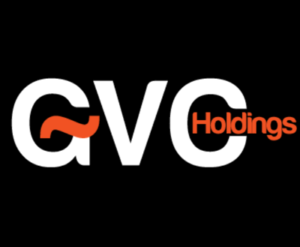 Another reason white label operators are closing down is due to acquisitions.
Another reason white label operators are closing down is due to acquisitions.
Many of the bigger networks have been bought out in the last 5 years or so and often the company that buys them decides they no longer want to run a white label operation.
A prime example is Cozy Games, who we talk about below.
Cozy Games
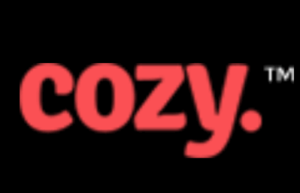 Cozy were one of the biggest bingo networks and white label providers of the previous ten years. At one point they ran 100’s of sites and had a deep portfolio of over 500 bingo and slot games that made then a customer favourite, including 30, 50, 75, 80, and 90 ball bingo.
Cozy were one of the biggest bingo networks and white label providers of the previous ten years. At one point they ran 100’s of sites and had a deep portfolio of over 500 bingo and slot games that made then a customer favourite, including 30, 50, 75, 80, and 90 ball bingo.
They became the go-to operator for bingo sites on a budget and had some of the more interesting brand names in the business (e.g Aunty Acid Bingo and Quack Pot Bingo).
They were bought by GVC (the mega company that owns Gala, Coral, Ladbrokes, Foxy and others) in 2017. GVC decided they wanted to keep the game development division and network but they wanted to massively reduce their white label services.
This lead to GVC surrendering the Cozy gambling license and moving their in house bingo brands along with their stronger white labels over to a new subsidiary called ExtraWorks. Cozy white labels were closed at a rate of around 30 a year of the 2018 and 2019 in response to this.
Some of those sites moved network, many to Dragonfish or Jumpman, but the majority simply seized to exist.
GVC have clearly decided the regulatory responsibilities now required to offer white label services far outweighs the benefits to them.
Virtue Fusion
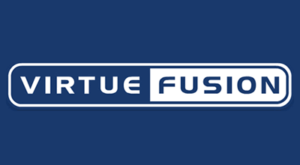 Another example of a network that previously provided white labels and now doesn’t is the Playtech owned company Virtue Fusion.
Another example of a network that previously provided white labels and now doesn’t is the Playtech owned company Virtue Fusion.
The company are renowned as having the best quality bingo rooms and they provide third-party bingo for some of the biggest names in the industry, like bet365 and Coral.
In the 2010’s Virtue Fusion provided white label services for a range of brands, most notably the national newspaper brands such as the Daily Mirror and Express.
In the last few years Playtech have had serious issues with white labels, one of their subsidiaries, PT Entertainment Services, was closed down due to responsible gambling failings for some of its casino/sports sites along with a massive fine.
On the back of this Playech decided they no longer wanted to hold the responsibilities for white labels and began to shut down their services in 2018, although they still actively provide bingo to independently licensed sites. Some of the brands, such as Mirror Bingo and ExpressWins (Daily Express) have now moved networks to Jumpman.
What Happens To Sites That Change Operator
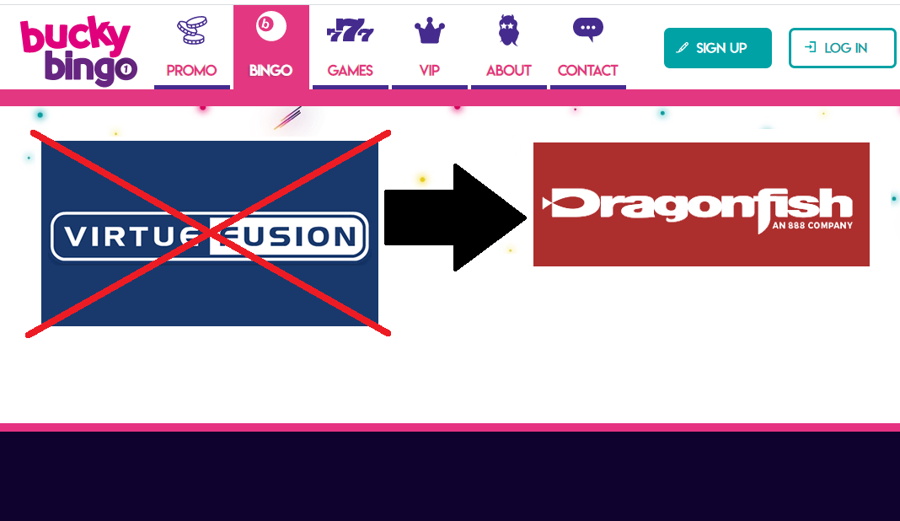 If a white label brand changes network and games provider they in effect become a brand new site. They may look the same on the surface as the branding remains the same but the games, rooms, promos, features and payment options will all be different as these are controlled by the operator not the brand.
If a white label brand changes network and games provider they in effect become a brand new site. They may look the same on the surface as the branding remains the same but the games, rooms, promos, features and payment options will all be different as these are controlled by the operator not the brand.
Taking the example of Mirror Bingo, this site was set up in 2008 on the dragonfish operated cashcade network, it moved to become a Virtue Fusion white label in 2014 and became a completely new site. They were forced to close in 2019 as VF stopped offering their license for use by others and relaunched again in 2020 operated by Jumpman.
In both of those instances the old site and the new site were entirely different, customers had to sign up again if they wanted to continue with the brand and they could not play the games with the same community as the previous incarnation.
Therefore if a white label moves almost nothing expect the brand name is maintained.
Will White Labels Be A Thing Of The Past In The UK?
 I doubt white labels will ever disappear entirely, unless the UK government decides they will ban them entirely, which seems unlikely.
I doubt white labels will ever disappear entirely, unless the UK government decides they will ban them entirely, which seems unlikely.
Rather what is more likely is we will see smaller white label operations continue to fold as regulation becomes tighter. At the same time the remaining providers, namely Jumpman and 888, are actually expanding, partly by hoovering up many of the brands dropped by other operators.
What we will likely see in the coming years is almost all white labels will be on Dragonfish and Jumpman, who now dominate the market. We may actually see more independent brands on the back of this, as those that would have set up as a white label 5 years ago may now choose to invest more in their own systems and license and then simply partner up with a network for bingo, without the brand owner being responsible for customers.
From a customer perspective this is safer as it means brand owners will need to be more serious about entering the market with a bigger budget, which should mean less closures and risk to funds. At the same time, however, this could lead to bigger monopolies that in itself reduces competition and value for customers.
In summary, the white label business as it was previously is all but gone but this will probably lead to more partially-managed solutions as brands and operators adapt.
Bingo is very specific to the UK and a small group of other countries and so this means, unlike casino, brands cannot simply pull out of the UK and switch their attentions to other markets. Therefore, bingo will continue to grow in the UK, in fact it is growing around 12% a year online, but the landscape around it is likely to continue to change.
